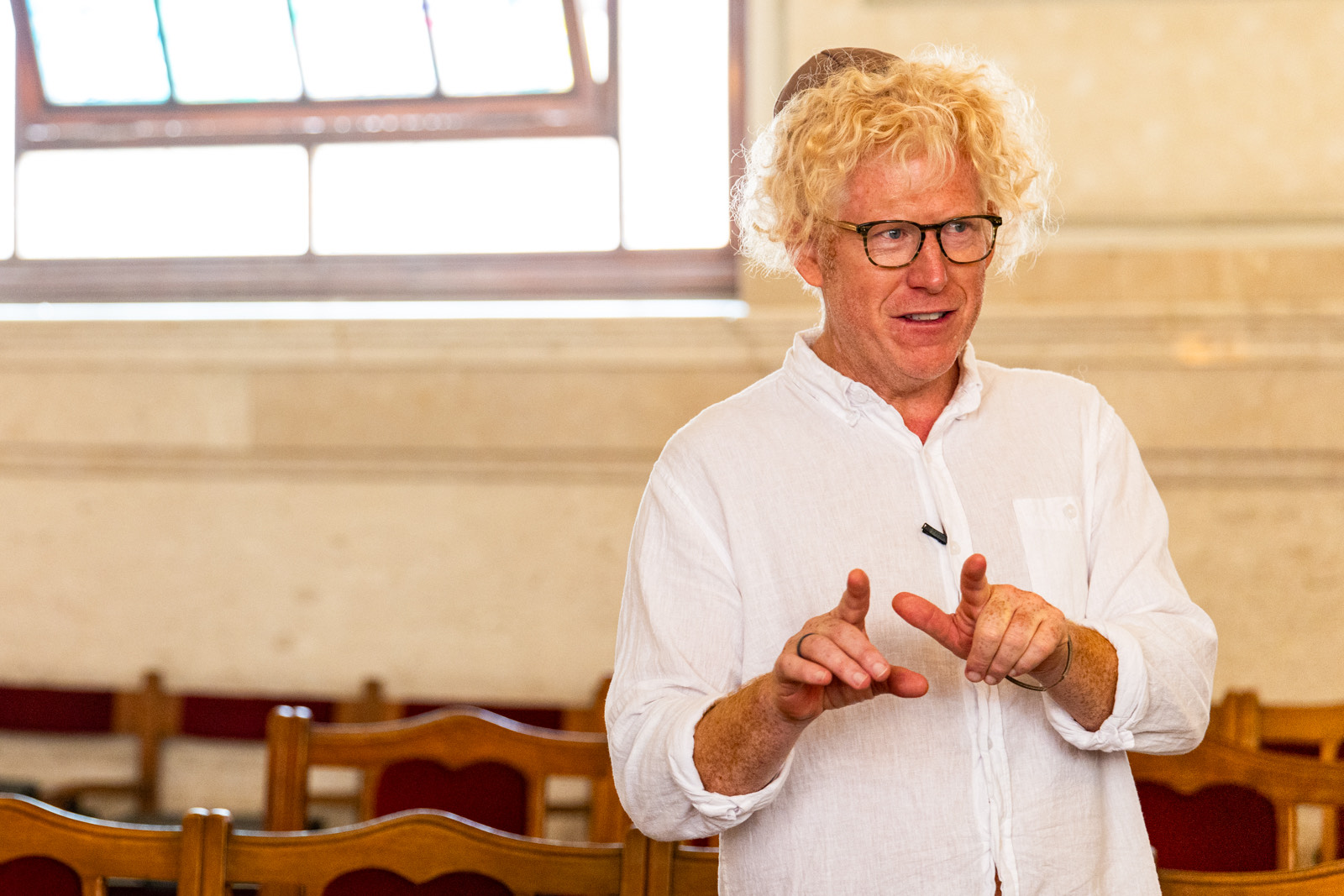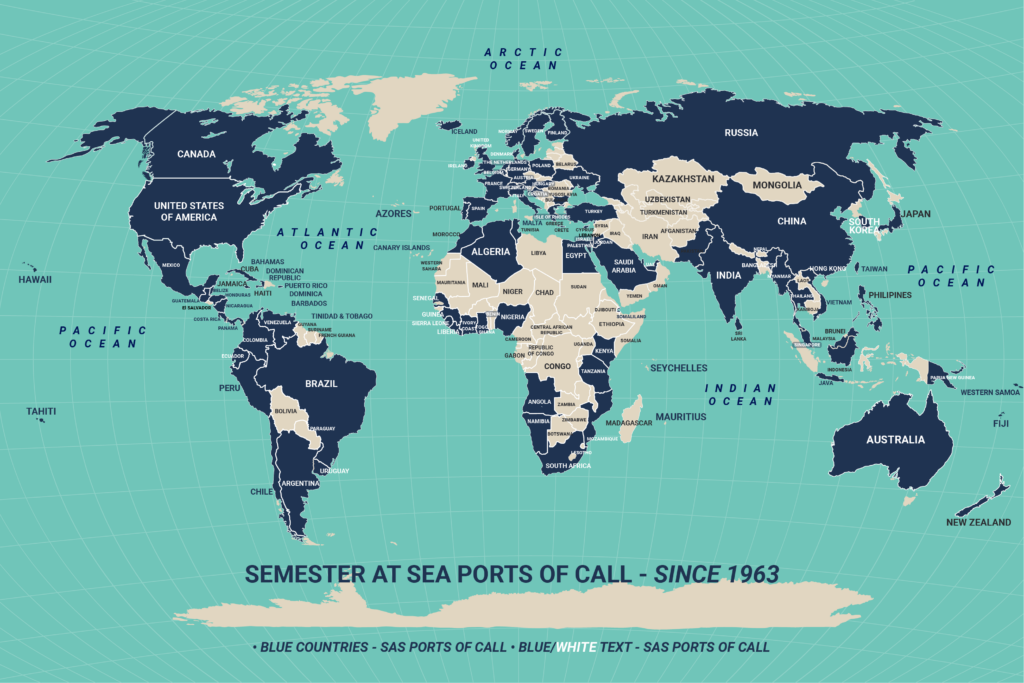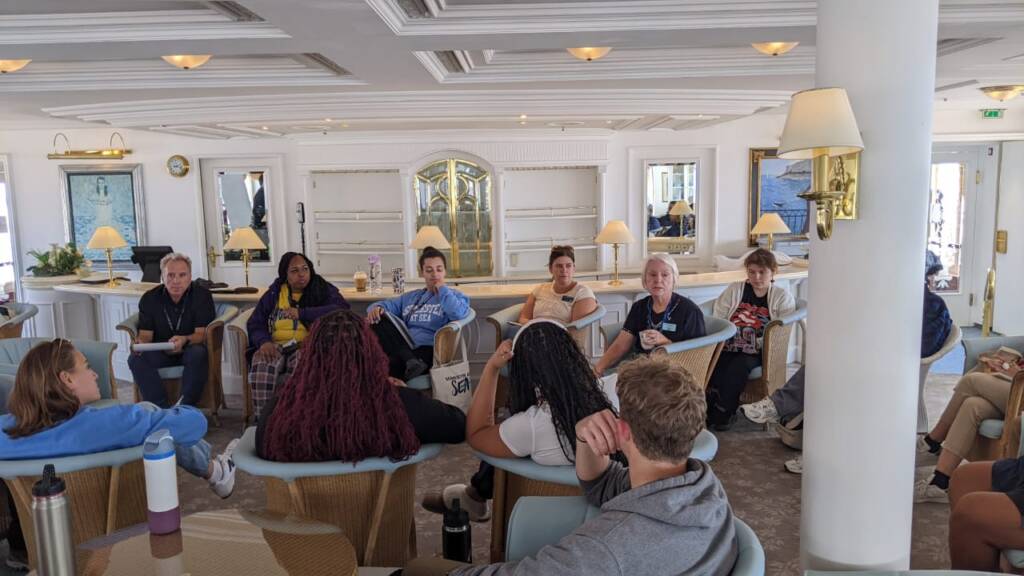At 19, on a remote Greek peninsula, Stephen Lloyd-Moffett stumbled upon a profound truth that would change the course of his life. After hours of travel to Mount Athos, a secluded monastic community, he had no idea that one simple interaction would shift his life’s direction.
Stepping off the bus into unfamiliar surroundings, Lloyd-Moffett wasn’t sure what to expect. It was his first visit to a monastery. That’s when he met a man with a kind face, warm eyes, and a simple greeting: “Welcome, I’m glad you’re here.”
The monk’s joy and compassion caught him off guard. His genuine smile and the aura of happiness he radiated deeply moved Lloyd-Moffett. While the monk’s words weren’t profound, his presence embodied something far deeper.
That moment sparked a life-altering question for Lloyd-Moffett: Why are monks so happy?
Now a Semester at Sea faculty member, Lloyd-Moffett traces his life’s path back to that moment during his study abroad experience at Claremont McKenna. As a professor on the Fall 2024 Voyage, he hopes his students experience their own transformative moments.
“If you look at the big moments in my life, study abroad was the defining element,” Lloyd-Moffett says.
Initially, he had dismissed the idea of studying religion, intending instead to pursue a career in business or film. But after his semester abroad, a lingering thought took hold: America’s definition of happiness felt like a lie.
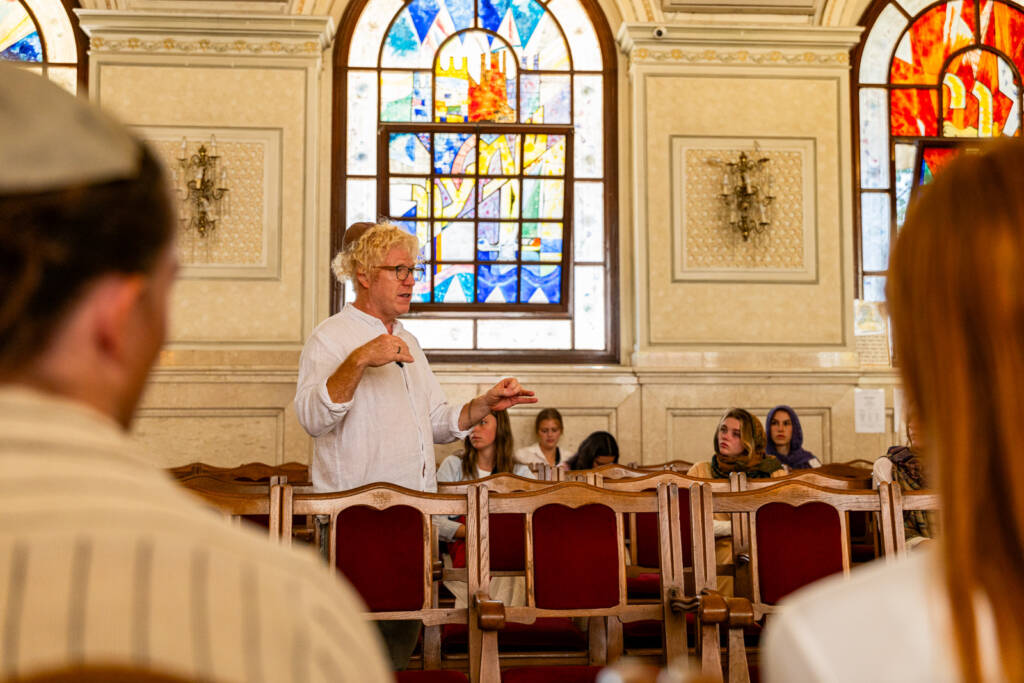
“They say to be happy, you need a job, kids, and to check off certain boxes,” he reflects. “Yet here was a guy with no status who seemed to have found what everyone in America is searching for—pure happiness.”
After graduating, Lloyd-Moffett was awarded a fellowship that funded 14 months of travel throughout Greece, India, and Russia. Over this period, he lived in 55 monasteries and visited more than 30 countries, studying the daily lives of monks in pursuit of understanding what makes their existence so fulfilling.
His time was spent in silence, washing dishes with monks, adjusting to new forms of prayer, enduring long bus rides, and grappling with a constant sense of seeking deeper meaning. What, he wondered, made these experiences transformative?
He realized that people often approach travel with an expectation of, “What is this doing for me?” or impatience—“I have to wait four hours to see this?”—which leads them to miss the mark on what travel can truly offer.
“Meaningful moments will happen,” Lloyd-Moffett says, “if you put yourself in a position to let them happen. But they won’t always happen on your schedule.” Often, the most impactful experiences arise from unexpected encounters, he explains, rather than from ticking off bucket-list destinations.
It’s not about seeing iconic landmarks or breathtaking landscapes, he believes. “None of those things compare to the conversations you have with people who see the world differently—sometimes in good ways, sometimes in challenging ways.”
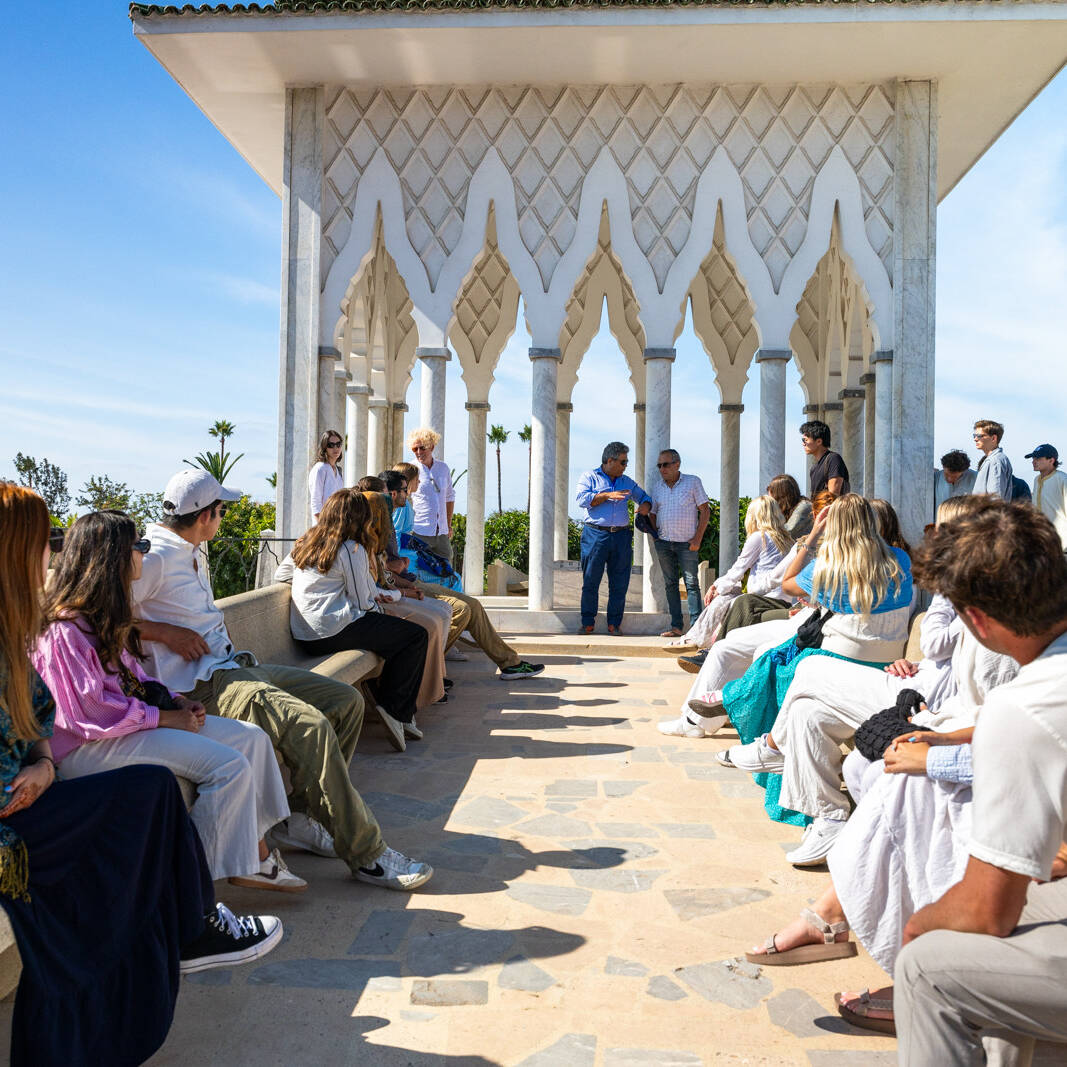
One of his most memorable interactions happened on a beach in Jordan, where he found himself in a conversation with two Dutch men about their country’s healthcare system. A seemingly random discussion shifted his perspective on Holland and its people in ways he hadn’t anticipated.
On this voyage with Semester at Sea, Lloyd-Moffett aims to foster these types of intellectual breakthroughs in his students. He encourages them to think critically about what they’re seeing and learning.
“I don’t want my students to walk into a church and just think, ‘Wow, that’s cool,’” he says. “It has to be deeper than that.”
He pushes them to ask bigger questions: “What were these people experiencing during this time? What was the intent behind this cultural creation?” By doing so, students can not only appreciate history and art but also gain insight into the struggles and triumphs of others, making them better citizens and more reflective individuals.
“You’ll see a thousand cool churches that you won’t remember,” he explains. “What you will remember is that random conversation you had with someone who’s lived through experiences you can’t even imagine.”
For Lloyd-Moffett, the beauty of Semester at Sea’s coursework is that it equips students with a rich academic foundation. This enables them to process their transformative encounters in a meaningful way. “When these moments happen,” he says, “you’re ready to understand them on a deeper level.”
He stresses the importance of venturing into the unfamiliar: “Put yourself in those waters, and every so often, a life raft comes along—a moment that helps you see the world in a new light.” Even ordinary interactions, he notes, can reveal profound truths.
As Semester at Sea visits a variety of countries, each destination offers a unique lens for students to explore life’s big questions. “The desert makes you think about life differently than the sea,” he observes.
As Lloyd-Moffett continues his voyage, he hopes to remind both himself and his students to “be patient for moments of meaning, because you’ll go through a lot of moments that aren’t meaningful.” That, he believes, is the essence of traveling with both purpose and patience.
